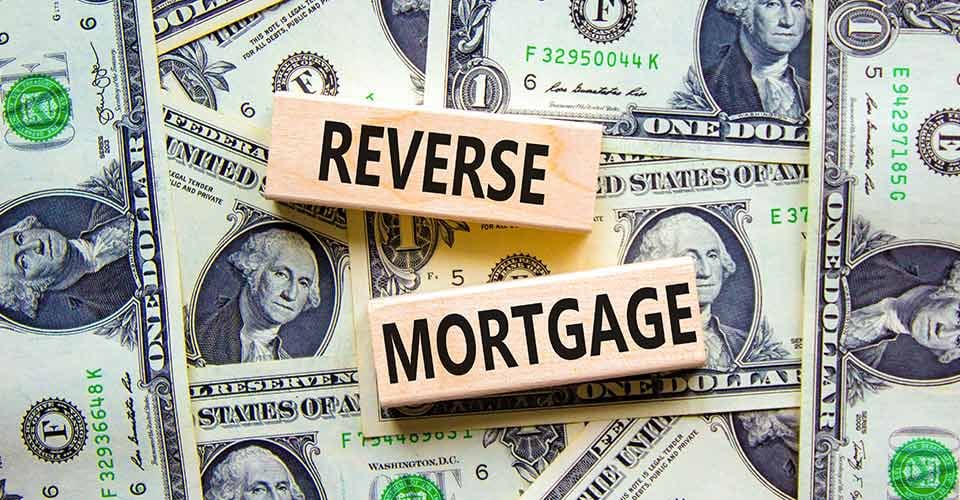Florida Reverse Mortgage FAQ and Changes in 2025
A reverse mortgage is a type of loan that allows homeowners in Florida to access a portion of the equity in their homes. This financial tool is specifically designed for senior citizens, typically those who are 62 years and older.
In Florida, like in other states, there are specific rules and regulations that apply to reverse mortgages.
To help you understand them, we've put together a list of frequently asked questions (FAQs) specifically about Florida reverse mortgages.
We also cover changes to reverse mortgage programs coming for 2025.
Table of Contents
- Reverse Mortgage Program Changes for 2024
- Reverse Mortgage Frequently Asked Questions for 2024
- What is a Florida reverse mortgage?
- How much can you qualify for in Florida?
- Does the bank take the title to your home?
- When is the reverse mortgage due for repayment?
- Can I pursue a Florida reverse mortgage if I have a current loan on my home?
- How does a Florida reverse mortgage impact my heirs' inheritance?
- What ways can you access the funds from a Florida reverse mortgage?
- What are the interest rates for Florida reverse mortgages?
- Is the money from a Florida reverse mortgage taxable?
- Can I pay towards my Florida reverse mortgage before it's due?
- What is a Florida Counseling Certificate?
- What is the Right of Rescission in Florida?
- Why do Florida HECM reverse mortgages have a Mortgage Insurance Premium (MIP)?
- Bottom Line
Reverse Mortgage Program Changes for 2024
The landscape of reverse mortgages is evolving, and 2024 brings noteworthy alterations to the program. The primary and most significant shift in 2024 concerns the loan limits.
For the year 2024, the reverse mortgage loan limit has seen an upward revision. Borrowers can now secure a reverse mortgage up to a limit of $1,080,000. This adjustment is a direct consequence of changes in the housing market.
The determination of this new ceiling is grounded in data from the Federal Housing Finance Agency's (FHFA) House Price Index (HPI). The HPI observed an 11.2% surge in the period concluding on June 30, 2023.
This index acts as an indicator of the health and movement of the housing market by tracking changes in the prices of homes purchased with mortgages backed by the major government agencies.

Reverse Mortgage Frequently Asked Questions for 2024
In this section, we will address the most common questions about reverse mortgages for the year 2024. These answers will provide clear information to help you understand the key aspects of this financial tool.
What is a Florida reverse mortgage?
In Florida, a reverse mortgage, sometimes referred to as a "HECM Mortgage," "Home Equity Conversion Mortgage," or "HECM Loan," is an FHA-insured loan program tailored for homeowners aged 62 and above.
This program allows these homeowners to convert some of their home equity into cash for their personal use. Contrary to regular mortgages, with a Florida reverse mortgage, there's no immediate repayment.
Repayment is only required when the last borrower no longer resides in the house, or if loan terms like keeping up with property taxes, insurance, and home maintenance are not met. Monthly mortgage payments are not mandatory.
How much can you qualify for in Florida?
The amount you can qualify for in Florida varies based on several factors.
The borrowing limit, often referred to as the "principal limit," is influenced by elements like your age, the appraised value of your home, any outstanding loans against your property, and the prevailing interest rate in Florida.
To get a clearer picture of the potential cash you could access, consider using a our custom Florida Reverse Mortgage Calculator for a tailored estimate.
Does the bank take the title to your home?
In Florida, even after obtaining a reverse mortgage, homeowners continue to hold the title and ownership of their property, similar to a standard mortgage.
However, to maintain this status, you must adhere to the loan requirements, which include staying up-to-date with property taxes, ensuring proper homeowner's insurance, and keeping up with home maintenance.
When is the reverse mortgage due for repayment?
In Florida, a reverse mortgage doesn't mandate monthly payments. The repayment is only initiated when the homeowner no longer resides in the property or if the loan terms aren't met.
These terms encompass staying updated with property taxes, maintaining appropriate insurance, and ensuring the home is well-maintained.
Can I pursue a Florida reverse mortgage if I have a current loan on my home?
Certainly. In Florida, if your home already has a mortgage, the initial proceeds from the reverse mortgage will be directed towards settling that existing loan.
As there are no obligatory monthly payments for the reverse mortgage, this can help reduce your monthly financial burdens and provide additional cash for your needs.
Remember, you must consistently handle property taxes, insurance, and regular home upkeep.
How does a Florida reverse mortgage impact my heirs' inheritance?
In Florida, the concept of a reverse mortgage often raises questions about its potential implications for heirs and the inheritance they might receive.
Here's a more detailed look at how it works.
Initiating a reverse mortgage in Florida doesn't change the fact that your heirs can inherit your property. The house remains a part of your estate and, upon your passing or when the reverse mortgage conditions are met, the responsibility of managing the loan balance transfers to your heirs.
When the time comes for the loan to be repaid, your heirs have several options. A common choice, as you mentioned, is to sell the property.
By selling, they can use the generated proceeds to repay the reverse mortgage lender. If the sales proceeds exceed the owed amount, the remaining funds are returned to your estate, potentially providing an inheritance for your heirs.
One significant advantage of Florida's reverse mortgage system is the incorporation of the non-recourse feature.
This is a protective measure ensuring that, in scenarios where the home's sale value doesn't cover the total amount owed, neither the heirs nor the estate are held responsible for the deficit.
Instead, the most the lender can claim is the value of the sold home, offering peace of mind to both borrowers and their heirs.
For many, the home is not just a financial asset but also holds sentimental value. It's essential to discuss your reverse mortgage decision with your heirs, ensuring they are informed and prepared for future steps.
What ways can you access the funds from a Florida reverse mortgage?
In the state of Florida, individuals have multiple methods to receive the proceeds from their reverse mortgage.
One option is to take out a single, tax-free lump sum payment, which provides immediate access to a large portion of your available funds.
Another choice is to receive steady, tax-free monthly payments, offering a consistent income stream over a set period.
Additionally, there's the flexibility of securing a line of credit, acting as a financial safety net that you can draw from when necessary.
If none of these individual methods completely suit your needs, you can also customize and combine them to best align with your financial goals and circumstances.
In Florida, after the initial month of your HECM loan, the principal limit expands monthly.
The growth rate is determined by adding one-twelfth of the current mortgage interest rate to one-twelfth of the monthly mortgage insurance premium rate.
Think of this growth more as an extension of your available credit rather than accumulated interest.
What are the interest rates for Florida reverse mortgages?
Interest rates play a key role in determining how much you'll pay over the lifetime of any mortgage, including reverse mortgages in Florida.
For reverse mortgages, there are primarily two types of interest rates - Fixed rate and Adjustable-rate (ARMs).
Fixed Rate
A fixed-rate reverse mortgage in Florida has a constant interest rate throughout the loan's duration. This type of loan typically requires borrowers to take a single lump-sum disbursement at the start.
Adjustable-rate (ARMs)
For ARMs, the interest rate can fluctuate over time. In Florida, payments for this kind of reverse mortgage can be taken in several ways - single lump-sum disbursement, line of credit, term, or tenure.
Notably, the annual adjustable rate can change periodically by up to 2%. There's also a safeguard in place—a lifetime cap—that ensures the rate won't increase by more than 5% over the initial rate.
Generally, ARM interest rates might be a bit lower than fixed-rate ones, but they come with the advantage of varied payment options, offering more flexibility to borrowers.
Is the money from a Florida reverse mortgage taxable?
In the state of Florida, there's a clear stance when it comes to the tax status of reverse mortgage proceeds.
The funds acquired from a reverse mortgage are not deemed taxable income. In simpler terms, when you receive these funds, you're not incurring any additional tax liability.
This non-taxable nature of reverse mortgages in Florida presents a distinct advantage.
If you're considering drawing from retirement accounts like 401(k)s, these withdrawals can potentially increase your taxable income for the year.
However, by utilizing the tax-free proceeds from a reverse mortgage instead, you can strategically avoid such taxable withdrawals.
This approach can be especially beneficial for seniors looking to optimize their finances, ensuring they have access to funds without increasing their tax burden.
Can I pay towards my Florida reverse mortgage before it's due?
Absolutely. In Florida, even though reverse mortgages don't mandate regular monthly payments, homeowners have the freedom to make voluntary payments whenever they wish.
It's essential, however, to consistently handle property taxes, ensure appropriate insurance coverage, and maintain the home's condition.
Notably, one advantage of a Florida reverse mortgage is the absence of penalties for early payments or prepayments.
What is a Florida Counseling Certificate?
In Florida, when you opt for a reverse mortgage, it's mandatory for all borrowers to undergo a session with an FHA-approved counselor, either over the phone or face-to-face.
This session results in the issuance of a Counseling Certificate, verifying that you have been adequately informed about the workings of a reverse mortgage.
This meeting is vital to ensure that you grasp all aspects of the reverse mortgage process, its financial ramifications, available choices, and other nuances.
The counseling session also offers an unbiased platform to address any lingering questions and gain clarity on the entire process.
What is the Right of Rescission in Florida?
In Florida, under Regulation Z of the federal Truth In Lending Act, borrowers are granted a right of rescission. This means you, as the borrower, have the right to cancel your loan within three business days following your loan closing.
During this three-day window, lenders in Florida are not permitted to charge interest on the funds set aside for you. Only after this period, specifically on the fourth day post-closing, can interest start accumulating.
In alignment with Regulation Z, at your loan closing in Florida, you should be handed a "Notice of the Right of Rescission." This document clarifies your right to retract the loan agreement within the specified three-day timeframe.
It's essential to sign and date this notice, marking the exact day you received it.
If, for any reason, you choose to invoke this right, you are obligated to inform your lender within those three days, adhering to the guidance detailed in your Notice of the Right of Rescission.
Why do Florida HECM reverse mortgages have a Mortgage Insurance Premium (MIP)?
In the Florida HECM reverse mortgage program, a Mortgage Insurance Premium (MIP) is applied, and here's why.
At the time of closing, an MIP charge is levied, which is either two (2) percent of your home's assessed worth or the FHA lending limit ($1,089,300), depending on which value is lesser.
Additionally, an annual MIP, equivalent to 0.5 percent of the remaining loan sum, is levied on you. Importantly, this cost doesn't reduce your accessible loan funds. Instead, it accumulates over the loan's lifespan and is settled when the loan is declared due.
But what does the MIP actually do? It serves as a protective measure for borrowers.
If the company handling your reverse mortgage account, known as the loan "servicer," were to cease operations, this insurance ensures the government intervenes, guaranteeing you still have access to your loan funds.
Another significant aspect of the MIP is its assurance that, no matter the loan's balance, you will never owe more than your home's value when it's time for the HECM to be repaid.
It's also important to note that, as per FHA guidelines, the MIP is deemed a "fully earned premium" at loan closure. This means that once charged, the mortgage insurance premiums are not subject to refunds.
Bottom Line
A reverse mortgage in Florida serves as a specialized financial instrument aimed primarily at senior homeowners, those who are 62 years and older. This tool allows them to convert a portion of their home's equity into cash without having to sell their homes.
As with any financial agreement, Florida has set guidelines and regulations to ensure both lenders and borrowers operate transparently and fairly.
The upcoming year, 2024, introduces an essential change to the reverse mortgage landscape - a raised loan limit. This alteration, driven by the rise in house prices as indicated by the FHFA's House Price Index, allows borrowers to access a larger portion of their home's value.
For potential borrowers, understanding the mechanics, benefits, and obligations of a reverse mortgage is crucial.
Issues like the tax implications, the impact on heirs, and the available methods of receiving the loan proceeds are just a few points to consider. Moreover, legal protections, such as the Right of Rescission, provide additional layers of security and clarity.
Lastly, the Counseling Certificate is a testament to the state's commitment to ensure borrowers are well-informed. This certification process, facilitated by an FHA-approved counselor, ensures you're not entering the agreement blind but with full knowledge and understanding.
In essence, while a Florida reverse mortgage offers many advantages, like any financial decision, it should be approached with caution, research, and preferably with consultation from professionals in the field.
With over 50 years of mortgage industry experience, we are here to help you achieve the American dream of owning a home. We strive to provide the best education before, during, and after you buy a home. Our advice is based on experience with Phil Ganz and Team closing over One billion dollars and helping countless families.

About Author - Phil Ganz
Phil Ganz has over 20+ years of experience in the residential financing space. With over a billion dollars of funded loans, Phil helps homebuyers configure the perfect mortgage plan. Whether it's your first home, a complex multiple-property purchase, or anything in between, Phil has the experience to help you achieve your goals.


 By
By  Edited by
Edited by 






